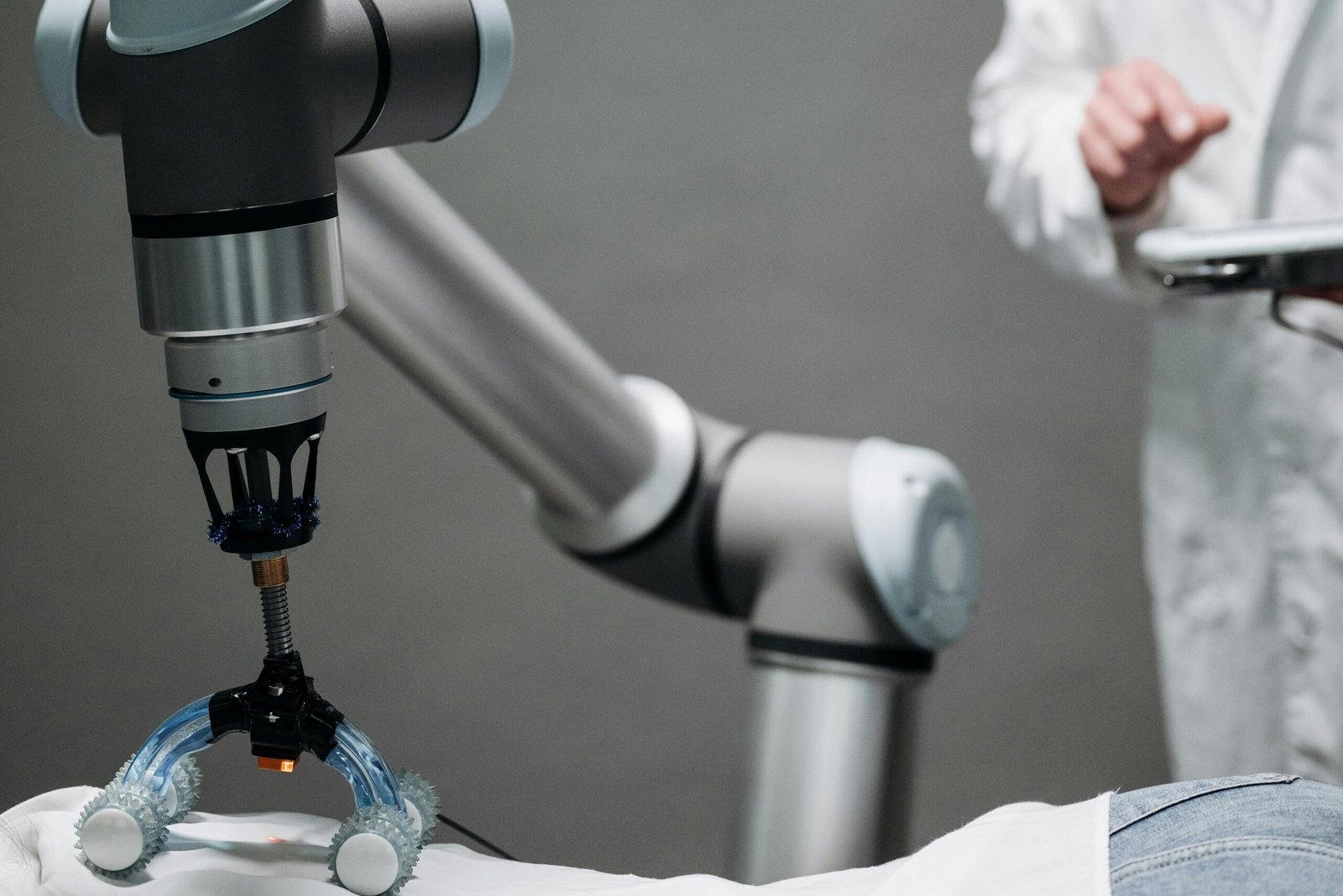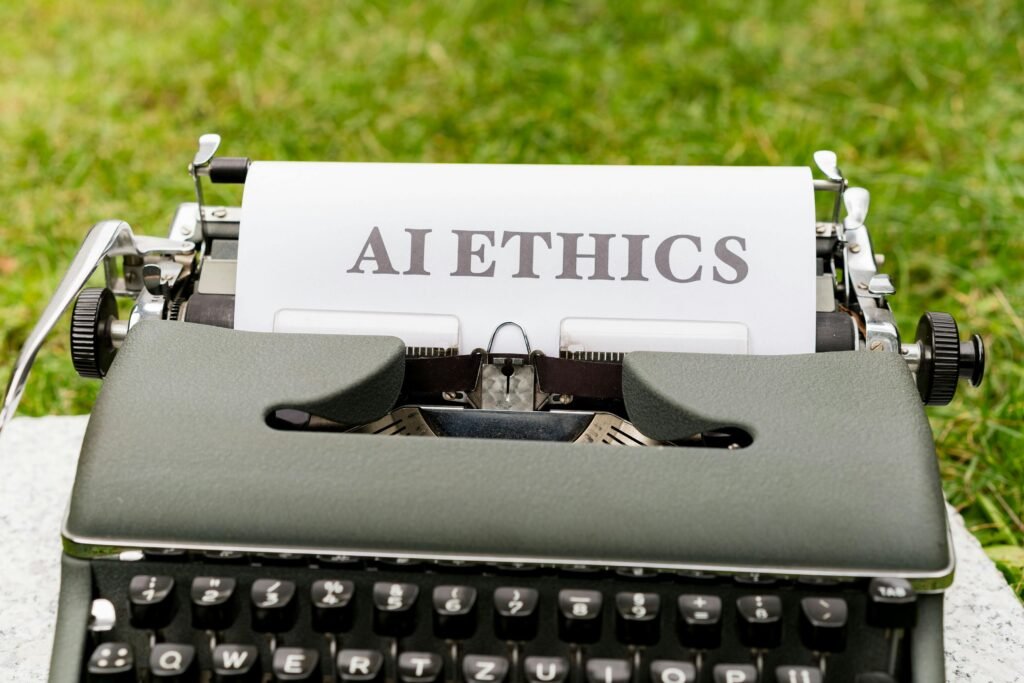AI’s Growing Role in Medical Diagnoses

Artificial intelligence has made significant strides in healthcare, with some AI systems now outperforming doctors in diagnosing diseases. AI models trained on vast datasets can analyze medical images, detect anomalies, and provide diagnostic recommendations with remarkable accuracy. Some hospitals have integrated AI into their workflows, allowing doctors to use AI-generated insights when making critical decisions. The efficiency and speed of AI have led many medical professionals to place increasing trust in its recommendations.
However, this reliance on AI is raising ethical and practical concerns. While AI excels at pattern recognition, it lacks the contextual understanding and clinical experience that human doctors bring to patient care. Over-reliance on AI could lead to misdiagnosis if doctors prioritize machine-generated results over their own expertise. The medical community is now debating how to balance AI’s capabilities with human judgment to ensure the best outcomes for patients.
AI vs. Human Intuition in Medicine
Medical professionals have traditionally relied on years of training and experience to diagnose complex conditions. However, AI models trained on millions of patient records can detect subtle patterns that even the most experienced doctors might overlook. Studies have shown that AI-powered diagnostic tools, such as DeepMind’s AlphaFold, have revolutionized fields like protein structure prediction, paving the way for breakthroughs in disease treatment. This level of accuracy is reshaping the medical landscape, making AI an invaluable tool in diagnostics.
Despite its advantages, AI lacks the human touch that is crucial in medicine. A doctor’s ability to interpret symptoms, understand patient history, and consider emotional factors plays a critical role in diagnosis and treatment. AI cannot replicate the nuanced decision-making that comes from years of hands-on experience. As AI adoption grows, healthcare systems must find ways to integrate technology without diminishing the role of human expertise.
The Rise of AI in Radiology
One of the most significant areas where AI has made an impact is radiology. AI-driven image analysis tools can detect early signs of diseases like cancer, tuberculosis, and fractures with high accuracy. Systems such as Google’s DeepMind have demonstrated the ability to analyze medical scans faster and more accurately than human radiologists. This has led to increased efficiency in diagnostics, reducing wait times for patients and improving treatment outcomes.
However, AI’s dominance in radiology is raising concerns about job displacement and decision-making autonomy. Some radiologists worry that AI will eventually replace human specialists, leading to an over-reliance on technology. Others argue that AI should be viewed as an assistive tool rather than a replacement, ensuring that human expertise remains central to patient care. The challenge lies in finding a balance where AI enhances rather than undermines the role of medical professionals.
AI Misdiagnoses and Liability Issues
While AI has proven its ability to detect diseases, it is not infallible. Cases of AI misdiagnoses have raised concerns about liability and accountability in medical practice. When an AI system provides an incorrect diagnosis, determining who is responsible—the doctor, the AI developer, or the hospital—becomes a complex issue. This legal and ethical dilemma has led to debates about how AI should be regulated in healthcare settings.
Additionally, AI models are only as good as the data they are trained on. Biases in medical datasets can lead to discrepancies in diagnosis, disproportionately affecting certain demographics. If AI systems are not properly calibrated, they could contribute to disparities in healthcare outcomes. As AI adoption increases, ensuring fairness and accuracy in its recommendations is crucial to maintaining patient trust.
The Ethical Dilemma of AI in Medicine

The growing reliance on AI in healthcare presents an ethical dilemma: should AI be allowed to make final medical decisions? Some argue that AI’s ability to process vast amounts of data makes it a more reliable diagnostic tool than humans. Others warn that removing human oversight could lead to unintended consequences, such as errors in complex cases that require a holistic approach. The integration of AI into healthcare must prioritize patient safety while leveraging the technology’s strengths.
Transparency in AI decision-making is another critical issue. Patients have the right to understand how AI reaches its conclusions, yet many AI models operate as “black boxes,” providing diagnoses without clear explanations. Medical professionals and AI developers must work together to create transparent AI systems that allow for human oversight and patient trust. Striking a balance between AI’s efficiency and human expertise will be key to the future of healthcare.
AI-Powered Pathology and Its Impact
Pathology is another medical field where AI is proving to be highly effective. AI models can analyze tissue samples and identify cancerous cells with incredible accuracy. Pathologists are now using AI to assist in diagnosing diseases at an earlier stage, improving patient outcomes significantly. In some cases, AI has detected patterns that even the most experienced specialists missed, leading to life-saving interventions.
However, the increasing dependence on AI in pathology raises concerns about human oversight. Some experts worry that doctors might become too reliant on AI-generated results, reducing their ability to recognize errors. While AI can enhance diagnostic precision, it is crucial that human pathologists remain actively involved in the decision-making process. Striking a balance between automation and human expertise will be key to maintaining quality healthcare.
The Use of AI in Predictive Medicine
AI is not only diagnosing diseases but also predicting them before symptoms even appear. By analyzing vast amounts of patient data, AI can identify individuals at high risk for conditions such as heart disease, diabetes, and neurological disorders. This advancement is shifting healthcare from a reactive to a preventive model, potentially saving countless lives. Early intervention strategies powered by AI are already showing promising results in reducing hospital admissions and improving long-term health outcomes.
Despite its benefits, predictive AI raises concerns about privacy and data security. Patients may be uncomfortable with AI predicting their future health risks, especially if that information is used by insurance companies or employers. Ethical questions surrounding the ownership and use of such sensitive data need to be addressed to ensure that AI-driven predictions benefit patients without compromising their privacy.
AI’s Role in Mental Health Diagnosis
Mental health professionals are also exploring AI as a tool for diagnosing and treating psychiatric conditions. AI-powered chatbots and diagnostic models analyze speech patterns, facial expressions, and social media activity to detect early signs of depression, anxiety, and other mental health disorders. Some platforms already provide AI-driven therapy sessions, offering support to individuals who might not otherwise seek help.
However, mental health is deeply personal, and AI cannot replace the human connection that therapists provide. Over-reliance on AI could lead to misdiagnoses or a lack of empathetic care. Additionally, the accuracy of AI-driven mental health assessments is still being debated, as cultural and linguistic differences can impact AI’s ability to interpret emotions correctly. While AI can assist mental health professionals, human involvement remains essential for effective treatment.
The Challenge of AI Bias in Healthcare
One of the biggest concerns with AI in medicine is bias in its algorithms. AI models learn from historical data, which may contain racial, gender, or socioeconomic biases. Studies have shown that AI diagnostic tools can sometimes be less accurate for certain demographic groups due to underrepresentation in training datasets. This can lead to disparities in medical care, where some patients receive incorrect or delayed diagnoses.
Addressing AI bias requires diverse and representative data, along with transparency in how AI models are trained. Developers and healthcare professionals must work together to refine AI systems and ensure fairness in medical decision-making. Without proper safeguards, AI could unintentionally worsen existing healthcare inequalities rather than reduce them.
AI and the Future of Medical Training
AI is not only changing patient care but also revolutionizing medical education. Medical students and trainees now use AI-powered simulations to practice diagnosing and treating diseases in virtual environments. These tools provide real-time feedback and allow future doctors to refine their skills before working with real patients. AI-driven training models can also personalize learning experiences, identifying areas where a student needs improvement.
However, there is concern that over-reliance on AI in training could weaken critical thinking skills. If medical students become too dependent on AI-generated recommendations, they might struggle to develop independent diagnostic abilities. The challenge is to integrate AI into medical education while ensuring that human judgment remains at the core of clinical decision-making.
AI’s Role in Drug Discovery and Development

The pharmaceutical industry is leveraging AI to accelerate drug discovery, cutting down research timelines that traditionally take years. AI models analyze vast chemical databases to identify potential drug candidates, predict their effectiveness, and suggest optimal formulations. This approach has already led to breakthroughs, such as AI-designed molecules entering clinical trials faster than those discovered through conventional methods. The efficiency AI brings to drug development has the potential to revolutionize treatment options for a wide range of diseases.
However, the speed of AI-driven drug discovery raises concerns about regulatory oversight and safety. Traditional drug development follows rigorous testing protocols to ensure patient safety, but AI’s rapid identification of new compounds challenges these established processes. Striking a balance between innovation and thorough clinical evaluation will be essential to prevent unintended risks associated with AI-generated pharmaceuticals.
The Potential for AI to Replace General Practitioners
As AI continues to improve in diagnostic accuracy, some experts speculate that it could eventually replace general practitioners for routine medical consultations. AI chatbots and virtual assistants are already handling basic health inquiries, providing treatment recommendations, and even prescribing medications in some regions. These AI-driven systems are particularly useful in areas with doctor shortages, offering patients quick and accessible healthcare solutions.
Despite these advancements, AI cannot fully replace the nuanced understanding and personalized care that human doctors provide. Complex medical cases require empathy, intuition, and adaptability—qualities that AI currently lacks. Additionally, patient trust plays a crucial role in healthcare, and many people may feel uncomfortable relying solely on a machine for their well-being. While AI can enhance efficiency in primary care, it should complement rather than replace human medical professionals.
The Future of AI in Personalized Medicine
AI is paving the way for personalized medicine, where treatments are tailored to an individual’s genetic makeup, lifestyle, and medical history. By analyzing vast amounts of patient data, AI can identify the most effective treatment plans for specific individuals, improving outcomes in areas such as cancer therapy, chronic disease management, and preventive care. Personalized medicine driven by AI has the potential to transform healthcare by making treatments more precise and reducing adverse reactions to medications.
However, the integration of AI in personalized medicine raises ethical and logistical challenges. Access to genetic data and advanced AI-driven treatments may not be equally available to all patients, potentially widening healthcare disparities. Additionally, privacy concerns regarding sensitive health data remain a significant issue. To maximize the benefits of AI in personalized medicine, healthcare systems must ensure equitable access and robust data protection measures.
